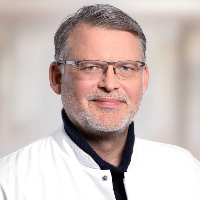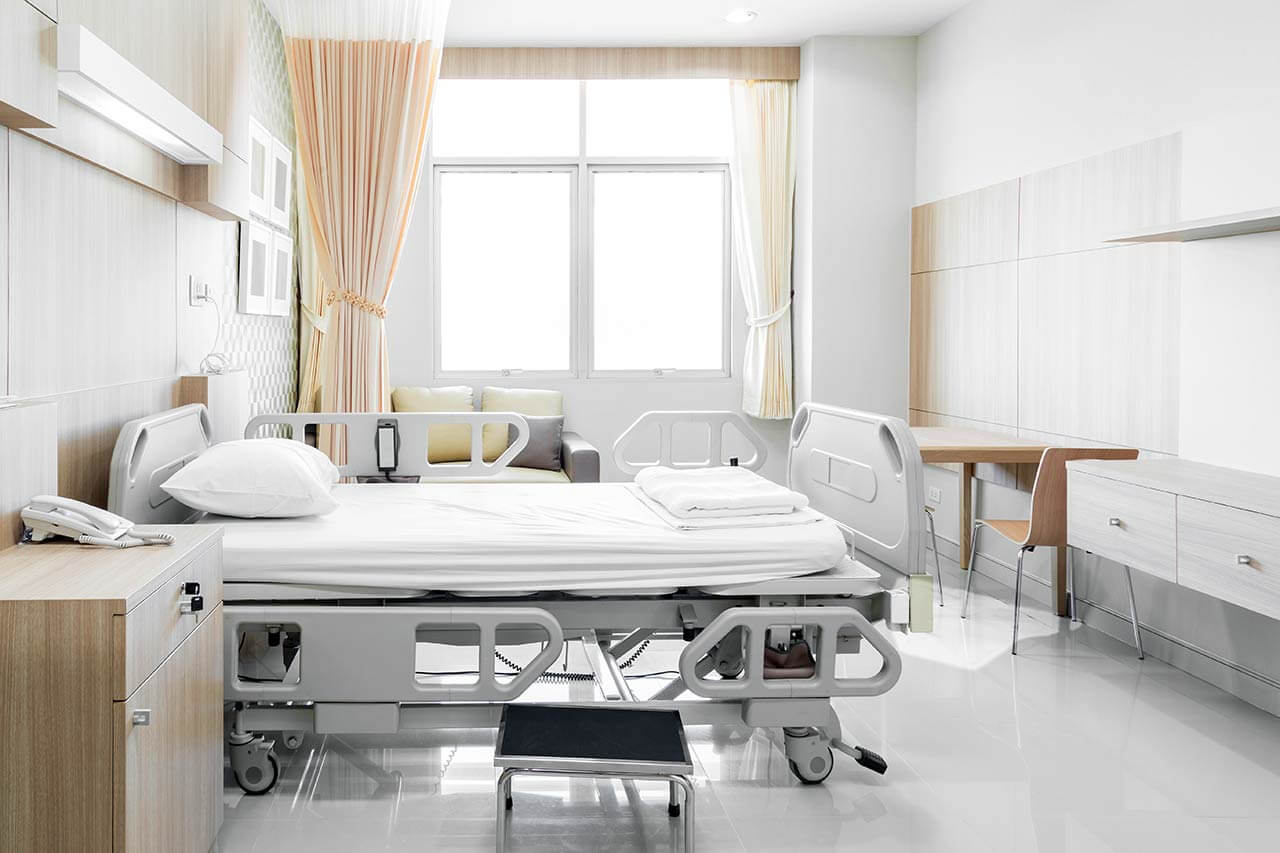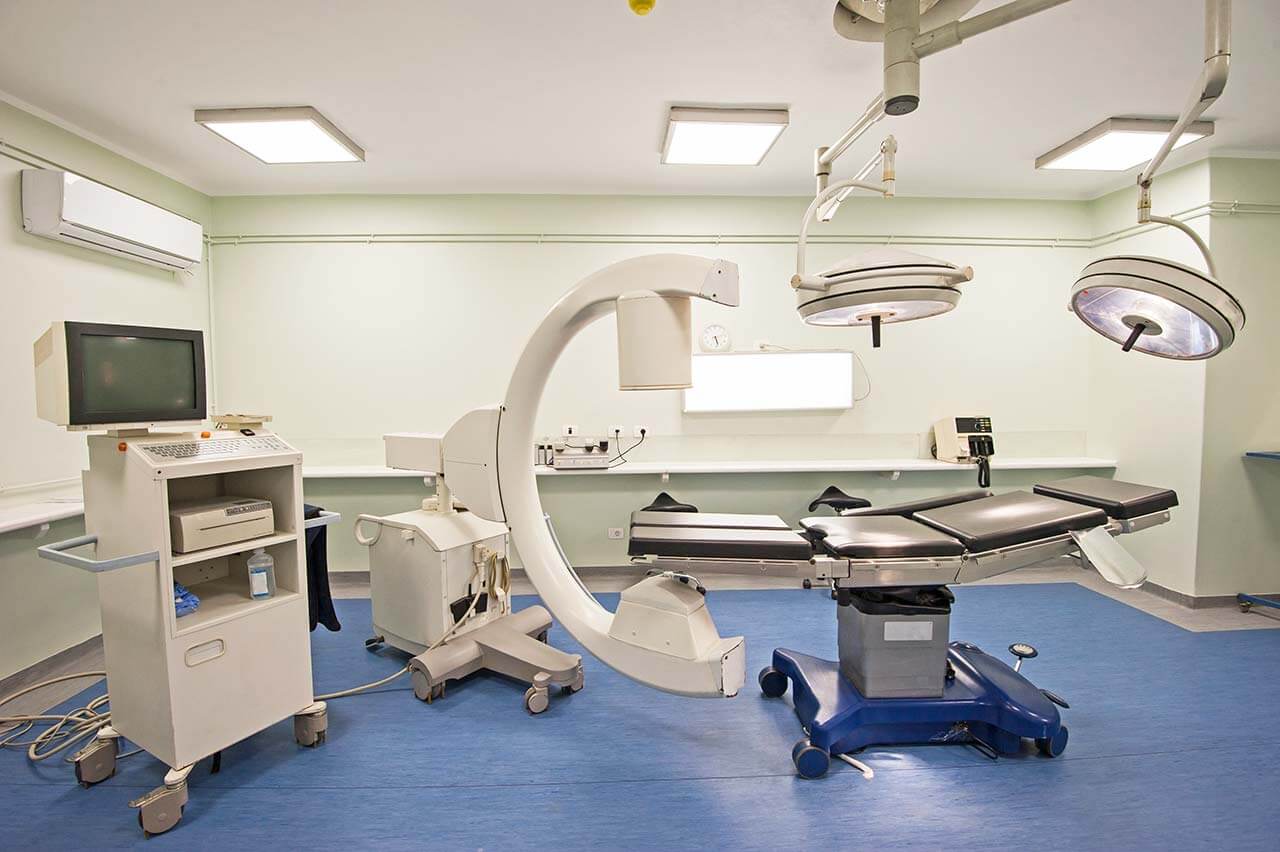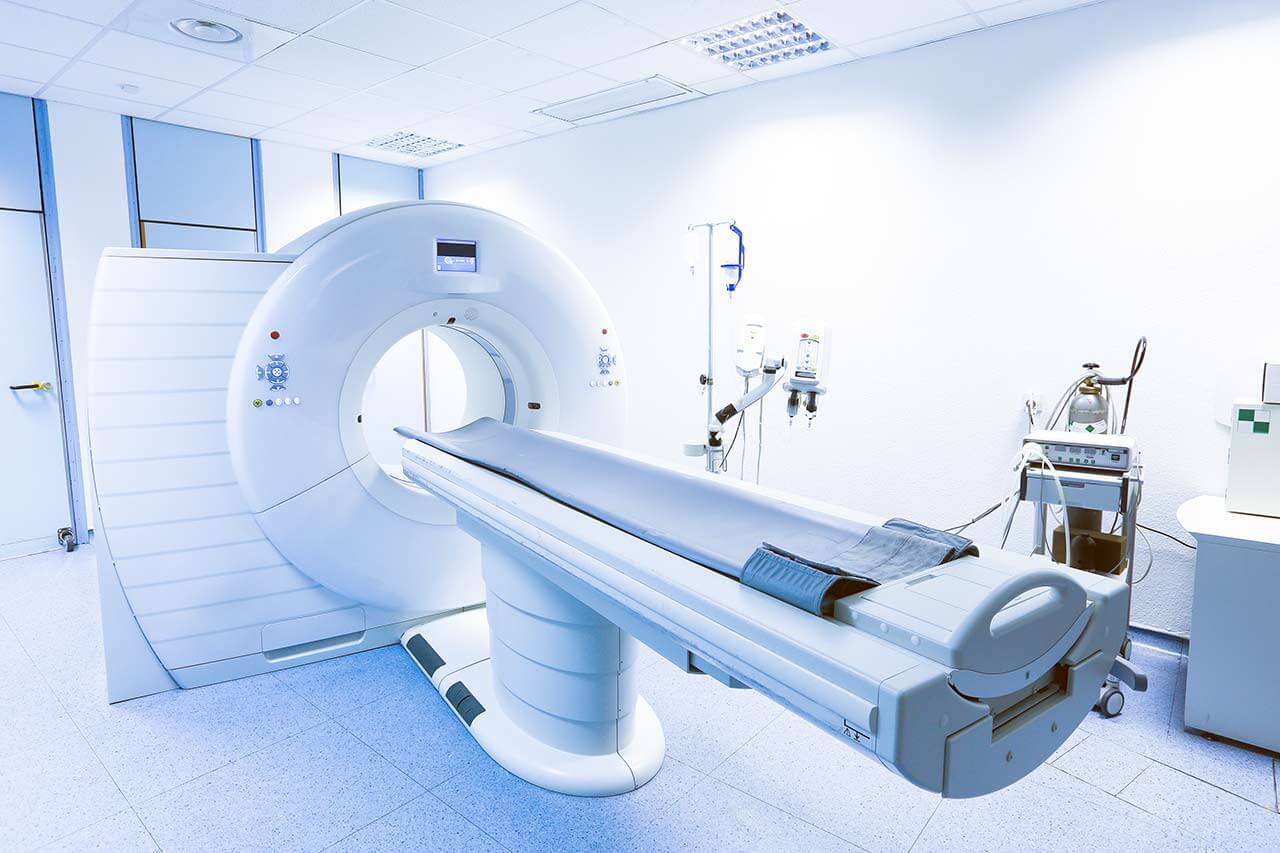
The program includes:
- Initial presentation in the clinic
- clinical history taking
- review of medical records
- physical examination
- laboratory tests:
- complete blood count
- general urine analysis
- biochemical analysis of blood
- TSH-basal, fT3, fT4
- tumor markers
- inflammation indicators
- indicators of blood coagulation
- ultrasound scan
- CT/MRI scan
- course of radiotherapy
- nursing services
- full hospital accommodation
- control examinations
- consultations of related specialists
- explanation of individual treatment plan
How program is carried out
During the first visit, the doctor will conduct a clinical examination and go through the results of previous laboratory tests and instrumental examinations. After that, you will undergo an additional examination, including complete blood count, laboratory assessment of liver and kidney function. Based on the received results, the physician will conduct radiotherapy planning with the help of CT or MRI, make the permanent tattoo marks on the skin and conduct CT simulation in order to assess the accuracy of the rays and the radiation dose. If necessary, related medical specialists will be involved in the elaboration of a treatment regimen (tumor board).
Radiation therapy is carried out as the inpatient procedure, with mandatory admission to the hospital. Before each session the physician will assess your general condition and the marks on the skin. After that, you will be placed in a shielded radiation therapy room, on a special table.
Each radiation therapy session lasts less than half an hour (including preparation). All this time, doctors and nurses are monitoring your condition, you can communicate with them through a loudspeaker. The procedure is completely painless. Depending on the planned course of treatment, you will have from 1 to 3-5 sessions of radiation therapy a week.
After the completion of the radiation therapy course, you will undergo control examinations aimed at assessing your condition and efficacy of treatment. After that you will receive the medical report with detailed recommendations regarding further follow-up and treatment. In the future, you will be able to have a distant consultation with your attending physician and schedule the next course of treatment, if necessary.
Required documents
- Medical records
- MRI/CT scan (not older than 3 months)
- Bone marrow biopsy results (if available)
Service
You may also book:
 Price:
Price:
About the department
The Department of Adult and Pediatric Radiation Therapy, Radiation Oncology at the Helios Hospital Berlin-Buch specializes in all types of modern radiation therapy for the treatment of cancers and pain syndromes. Radiation therapy can be performed before, during or after surgery. In some cases, the department's doctors manage to achieve a positive result only with the help of radiation therapy, and thereby eliminate the need for surgical treatment. Prior to radiation therapy, it is carefully planned using the very latest imaging systems. The department's doctors are highly professional experts and have unique experience, thanks to which they provide excellent medical services. The Chief Physician of the department is Prof. Dr. med. Robert Krempien.
Thanks to the available innovative computer technologies, the department's doctors have the opportunity to carefully examine the patient prior to radiation therapy and determine the necessary radiation dose as accurately as possible in order to achieve an effective result. At the same time, the department's specialists apply irradiation techniques to maximize the impact on the tissues affected by pathology, but not to impact on the healthy ones.
It is worth noting that the department is one of four medical facilities in Germany, which provides intraoperative electron radiation therapy. To carry out this type of therapy, the doctors apply an ultramodern mobile linear accelerator, which is the source of electronic radiation. Currently, this technique is considered the fastest, safest, most versatile and accurate option for intraoperative radiation therapy. During the therapy, the accelerator generates a high-dose electron beam, which is directed to the tumor, while classical radiation therapy involves irradiation from the outside, through the skin and healthy tissues. The electrons pass through a manipulator, on which a linear accelerator is mounted. During the procedure, the surgeon and radiation therapist work hand in hand. The exposure time during the surgery lasts no more than 1-2 minutes.
To treat superficial tumors, in particular, skin tumors, the department's doctors mostly use X-ray irradiation. Such irradiation is suitable for the treatment of both skin malignancies, and benign skin changes (for example, keloid scars). The therapy can be applied if the tumor cannot be removed surgically due to its size or location, or as an additional treatment after surgery (especially after surgical removal of basal and squamous cell carcinoma).
The department also provides radiation therapy for the treatment of degenerative and inflammatory joint diseases. In this case, X-ray irradiation (orthovoltage x-ray therapy) is applied. The therapy is particularly effective in patients with acute and chronic joint diseases, arthrosis, arthritis, pain syndromes, tendon lesions, Dupuytren's contracture and Ledderhose disease.
The therapeutic options of the department include the treatment of the following diseases:
- Uterine and cervical cancer
- Lung cancer
- Benign and malignant brain tumors (for example, astrocytomas, glioblastomas and meningiomas, as well as brain metastasis)
- Malignant neoplasms in children
- Genitourinary cancer in men (prostate cancer, bladder cancer)
- Head and neck tumors
- Gastrointestinal tumors
- Benign joint diseases
- Other pathologies
The department specializes in the following types of radiation therapy:
- Intraoperative electron radiation therapy
- X-ray exposure for superficial benign and malignant skin neoplasms
- Pain therapy using irradiation for degenerative and inflammatory joint diseases
- Preoperative radiation therapy
- Chemoradiotherapy
- Radiation therapy in combination with immunotherapy
- Hyperthermia
- Psycho-oncological care
- Other types of radiation therapy
Curriculum vitae
Education and Professional Сareer
- 1992 Faculty of Medicine, University of Heidelberg; Research Fellow at the Mount Sinai Medical Center in Toronto (Canada); Clinical Officer, Faculty of Medicine, Wuhan University (People's Republic of China) and Frenchay Hospital (England).
- 1993 Residency in the Department of Internal Medicine at the University Hospital Heidelberg.
- 1995 Work in the Department of Radiation Oncology at the University Hospital Heidelberg and at the German Cancer Research Center.
- 2001 Board certification in Radiation Oncology
- 2002 - 2007 Work in the Department of Radiation Oncology and the Department of Brachytherapy at the University Hospital Heidelberg.
- 2003 Head of the Department of Intraoperative Radiation Therapy.
- 2004 Assistant Professor at the University of Heidelberg.
- 2006 Professorship.
- 2003 - 2007 Work at the National Cancer Center of the University of Heidelberg and the German Cancer Research Center.
- 2007 Head of the Department of Adult and Pediatric Radiation Therapy, Radiation Oncology at the Helios Hospital Berlin-Buch.
Prizes and Honors
- 2001 Jean Paul Obrecht Award.
- 2003 Prize for Technical Innovation in Radiation Oncology at the Meeting of the German Society of Radiation Oncology (DEGRO).
Special Clinical Focuses
- Breast cancer treatment.
- Prostate cancer treatment.
- Radiation therapy for the treatment of benign, degenerative and inflammatory diseases, as well as endocrine ophthalmopathy.
Photo of the doctor: (c) Helios Klinikum Berlin-Buch
About hospital
According to the reputable Focus magazine, the Helios Hospital Berlin-Buch ranks among the top medical facilities in Germany!
The hospital is proud of its rich history, which dates back over 100 years, as well as the status of a maximum care medical center with exceptionally high success treatment rates. The medical institution is an academic hospital of the Charite Medical Complex, which is one of the best in Europe and around the world. To provide its services to patients, the hospital has over 1000 beds, over 60 specialized departments, centers and institutes, including emergency service and a helipad, as well as 23 state-of-the-art operating rooms.
The medical institution presents almost all branches of modern medicine, many of which are certified by professional German societies (for example, certification of the German Cancer Society, German Diabetes Society).
The hospital diagnoses and treats about 52,000 inpatients and more than 144,000 outpatients every year. The medical services and patient care are provided by world-renowned highly competent doctors and qualified nursing staff. To achieve the best treatment results, the doctors of related medical disciplines work closely together and jointly develop optimal treatment regimens.
It is worth noting that the hospital is located in a beautiful green park area. In the immediate vicinity of the hospital one can find Buch Castle, Buch Forest and Barnim Nature Park. All this has a beneficial effect on patients, as they have the opportunity to stroll through beautiful places that inspire and help to gain strength for the successful overcoming of the therapeutic process.
Photo: (c) depositphotos
Accommodation in hospital
Patients rooms
The patients of the Helios Hospital Berlin-Buch live in comfortable rooms made in bright colors. Each patient room is equipped with an ensuite bathroom with shower and toilet. The standard room includes an automatically adjustable bed with a system for calling nursing staff (this system also serves to use TV, radio, lamps), a bedside table, a locker for storing personal belongings, a TV, a radio. The hospital offers WI-FI.
Meals and Menus
The patients of the hospital are offered tasty and balanced three meals a day. Breakfast is served as a buffet with a wide selection of pastries, cereal, sausages and cheese. For lunch, the patients usually have a choice of three menus, including a vegetarian menu. Also, the patient can independently combine a lunch menu from various meat, fish and vegetarian dishes and side dishes. Dinner includes a standard menu and dishes that the patient can choose on his own to his taste.
In addition, the hospital houses a cozy cafe with an excellent assortment of pastries, fresh salads, sandwiches, as well as traditional Berlin dishes. Here you can enjoy a cup of aromatic coffee, hot tea or refreshment drinks.
Further details
Standard rooms include:



